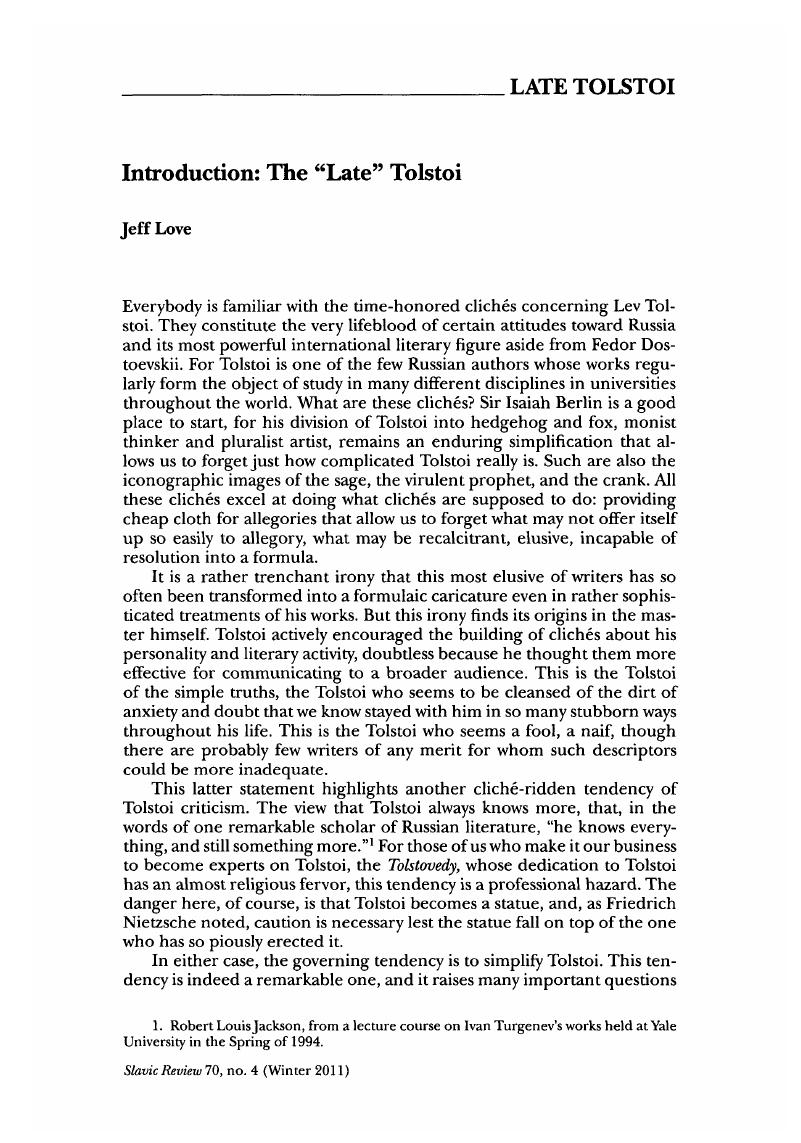No CrossRef data available.
Published online by Cambridge University Press: 27 January 2017

1. Robert Louis Jackson, from a lecture course on Ivan Turgenev's works held at Yale University in the Spring of 1994.
2. A notable exception is Inessa Medzhibovskaya's major study Tobtoy and the Religious Culture of His Time: A Biography of a Long Conversion, 1845-1887 (Lanham, Md., 2008).
3. See Pickford's, Henry excellent article on Tolstoi and Wittgenstein, “Of Rules and Rails: On a Motif in Tolstoy and Wittgenstein,” Tolstoy Studies Journal 22 (2010): 39–53.Google Scholar
4. Borges, Jorge Luis, Selected Poems, ed. Coleman, Alexander (New York, 1999), 149.Google Scholar
5. See [Maksim Gor'kii], Gorky's Tolstoy and Other Reminiscences, trans., ed., and introduced by Donald Fanger (New Haven, 2008), 37. I greatly simplify Tolstoi, whose pithy comment is remarkable for claiming that Dostoevskii sought to revenge himself (presumably through fiction) for serving that in which he did not believe.
6. Kaufmann, Walter, Existentialism, Religion and Death: Thirteen Essays (New York, 1976), 21.Google Scholar
7. Heidegger, Martin, Contributions to Philosophy (from Enowning), trans. Emad, Parvis and Maly, Kenneth (Bloomington, 2000), 41.Google Scholar